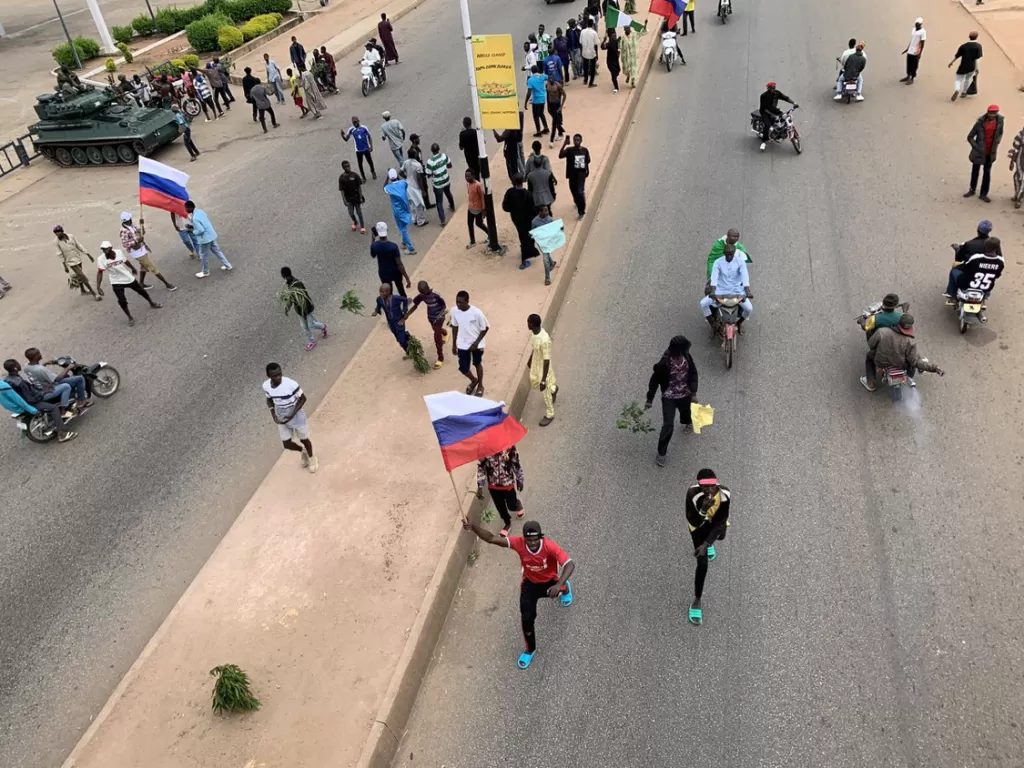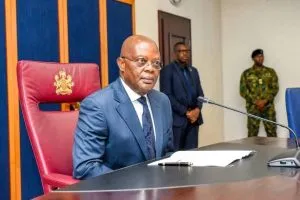Nigerians Protest with Russian Flags Amid Economic Hardship and Political Unrest

In recent days, Nigeria has witnessed a surge in protests against the rising cost of living and bad governance. Thousands of people, mostly young, have taken to the streets across the country, expressing their discontent over the economic crisis that has gripped Africa’s most populous nation.
The protests, dubbed “days of rage,” began on August 1st, 2024, and have continued into the following days. Demonstrators have been seen waving Russian flags and banners of Russian President Vladimir Putin, calling for his intervention in the country’s affairs. The use of Russian symbols has raised eyebrows and sparked speculation about the protesters’ intentions and the potential influence of foreign powers in the region.
The economic situation in Nigeria has been dire, with fuel prices skyrocketing, food inflation at an all-time high, and the value of the naira plummeting. Many Nigerians are struggling to make ends meet, and the government’s policies have only exacerbated the situation. The protests are a direct response to the economic hardships faced by the population.
However, the presence of Russian flags and the call for Putin’s intervention have added a new dimension to the demonstrations. Some analysts believe that the protesters are seeking support from Russia, which is seen as a non-capitalist nation, to help address their grievances. The influence of Russia in the Sahel region, particularly in neighboring Niger, has been growing, and this could be a sign of its expanding presence in Nigeria.
The use of Russian flags and calls for Putin’s intervention have raised concerns among some Nigerians, including former military officers and diplomats. They worry that the protests could be hijacked by foreign interests and that Nigeria’s sovereignty could be compromised. The Director of Defence Media Operations and the spokesperson for the Department of State Services have not yet commented on the situation.
As the protests continue, the Nigerian government faces increasing pressure to address the economic crisis and respond to the demands of the demonstrators. The situation is complex, with various factors at play, including the influence of foreign powers and the underlying economic issues that have plagued the country for years.







